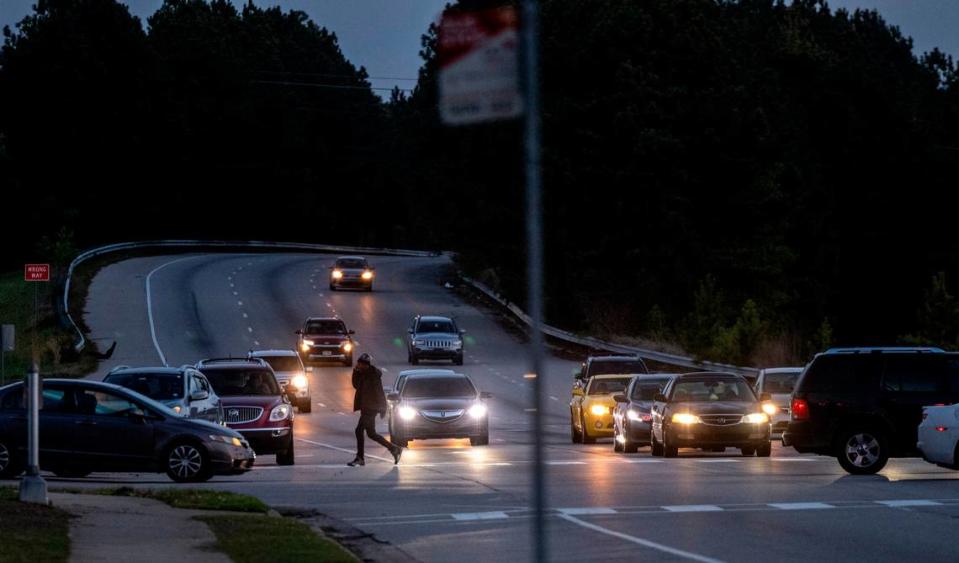Want safer roads, California? Then support speed cameras that automatically ticket | Opinion
If speed cameras can reduce traffic accidents — and plenty of evidence says they do — California lawmakers would be foolish to oppose a bill that would allow their use on an extremely limited, trial basis.
Yet that’s what they’ve done on at least two previous occasions.
Now they have another chance to do the right thing.
Under Assembly Bill 645, six California cities — Los Angeles, San Jose, Oakland, Glendale, Long Beach and San Francisco — would be permitted to use the cameras for five years.
Cameras could be only in certain areas: school zones; streets where there is a history of serious accidents; and areas where illegal street racing occurs.
Cameras would take pictures only of license plates — not of drivers’ faces — and there are limits on how long the photos could be kept.
The bill authored by Assemblymember Laura Friedman, D-Glendale, passed in the Assembly and is now in the Senate, where it was approved by the Judiciary Committee on Tuesday.
Already in use
Speed cameras are legal in several other states and used in hundreds of communities in the U.S., as well as throughout Europe.
Studies show they reduce accidents. One comprehensive report by Cochrane, a UK-based health nonprofit, reviewed accident statistics from 28 studies and found that crashes causing death or serious injury were reduced between 17% and 58% after cameras were installed.
New York City started a small pilot program in school zones in 2013, expanded it to 750 school zones in 2019, and in 2021 found that speeding had been reduced by an average of 73% at locations with fixed cameras.
A ‘cash cow’ for cities?
New York now has 2,000 speed cameras. Last year, it switched from using them only on weekdays, between 6 a.m. to 10 p.m., to operating them around the clock.
“New Yorkers deserve to be safe on our streets 24 hours a day, seven days a week, and keeping our cameras on is a critical step in that direction,” Mayor Eric Adams said at a “flip the switch” ceremony last year.
Some New Yorkers, though, wondered whether the city had another motive: To rake in more money. After extending operating hours, the city took in an additional $17 million in $50 fines in just the first four weeks.
That’s one of the major objections to speed cameras; some critics see them as speed traps designed to boost revenue for cities.
California’s bill would limit that in several ways:
Warning signs would be posted to let drivers know they are about to enter a monitored zone.
It would cap the number of cameras allowed in a city, based on population.
Speeding tickets would be issued only to motorists traveling 11 mph or more beyond the speed limit.
Fines would start at $50 and go up to $500, for motorists driving 100 mph or more. (Tickets would not affect insurance rates or DMV points.)
Fines would be reduced for low-income households.
Revenue would go toward operating the programs — cities, rather than the state, would fund them — and making road safety improvements.

Other arguments against cameras
There also are privacy concerns, and a sense that this is just one more example of Big Brotherism.
That’s understandable. Yet license plate readers are already widely used in California — by law enforcement, at toll booths, in parking garages.
Consider, too, that red light cameras are legal in California — yet speed cameras aren’t? That makes no sense.
According to the Los Angeles Daily News, the Peace Officers Research Association of California (PORAC) has raised another objection: the possible loss of jobs for traffic officers.
Cameras are a cost-effective way to augment police patrols, not replace them — especially in areas such as school zones, where vulnerable pedestrians are present.
Law enforcement officers have better things they can be doing than handing out speeding tickets in person when a more efficient option exists.
Besides, putting job stability ahead of preventing injuries and even loss of lives is ludicrous.
No more delays
California is behind the curve when it comes to using technology to protect the public from reckless drivers.
It’s frustrating that it’s taking so long for the Legislature to advance this, and there’s still no guarantee the bill will pass.
Even if it does, under terms of the pilot program, it will be at least five years before the technology can be extended to other communities, which seems like an absurdly long test period for such a simple technology that’s already been proven effective in myriad other places.
It’s also silly to only test the program on city streets. Why not install cameras on highways that have a history of accidents related to speeding?
All that being said, we cannot afford any more delays.
We strongly urge the Legislature to approve the bill and the governor to sign it.

